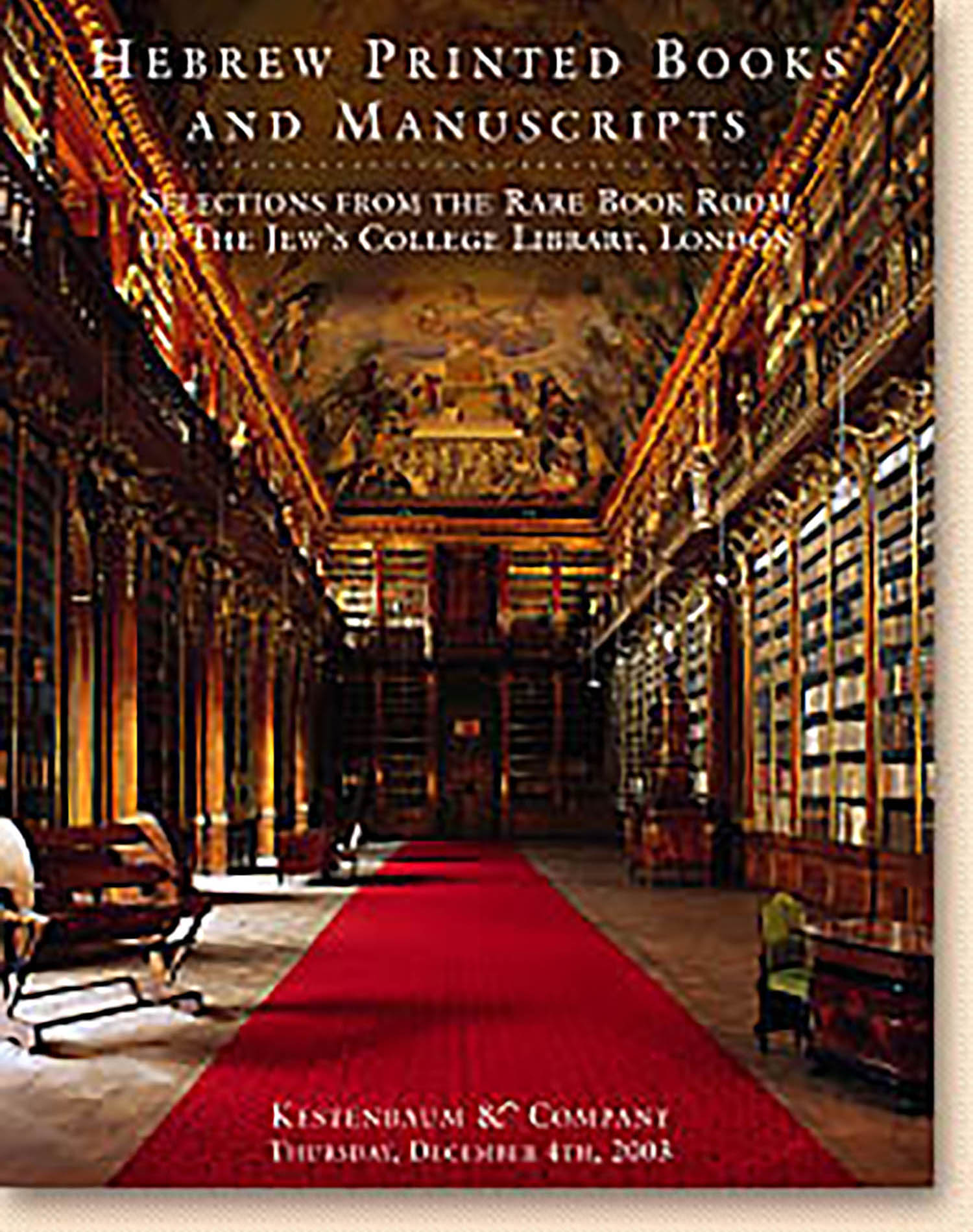MENASSEH BEN ISRAEL

AUCTION 21 |
Thursday, December 04th,
2003 at 1:00
Kestenbaum & Company Holds Inaugural Auction of Hebrew Printed Books & Manuscripts at Their New Galleries
Lot 170
MENASSEH BEN ISRAEL
Amsterdam: By the Author 1639
Est: $1,000 - $1,500
A discussion whether death is brought on by natural causes or divinely ordained. The Dutch intellectual Jan van Beverwyck had opened the discussion in his work Epistolica Quaestio de Vitae Termino, fatali an mobili (Dordrecht, 1634). Our own work, Menasseh's response, argues, based on Jewish sources, that the span of life is not predetermined by the Deity but depends on constitutional, temperamental, and climatic influences. The book concludes with Carmen Intellectuale, a panegyric in honor of Menasseh by Jacob Rosales of Hamburg. “Of all Menasseh’s Latin works, this was the most successful.” Cecil Roth, A Life of Menasseh ben Israel (Philadelphia,1945), p. 95.
As for the second work, the non-Jewish author, Philip Muller, would seem to have been influenced by the Kabbalah. Patai writes: “This reliance on the Kabbalah being the general trend of sixteenth- to eighteenth century alchemy, it was inevitable that Hebrew words should be found frequently in the texts, notably in those of Bang, Muller, Maulius, Sallwigt, and Wienner” (R. Patai, The Jewish Alchemists [Princeton, 1994], p. 158).
